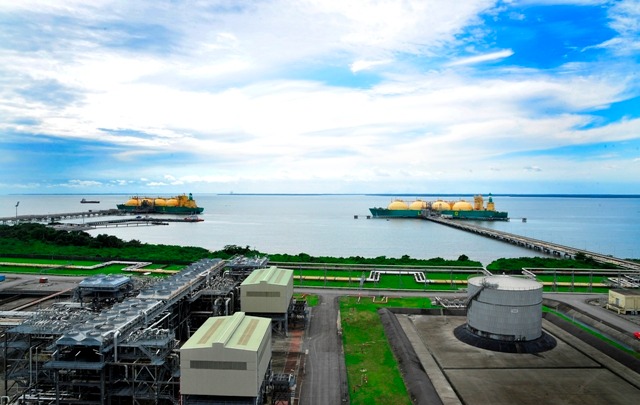Nigeria LNG plans to conduct regular maintenance at its giant Bonny Island liquefaction plant in February or March 2024.
The LNG terminal operator owned by the Nigerian National Petroleum Corporation (49 percent), Shell (25.6 percent), TotalEnergies (15 percent), and Eni (10.4 percent), revealed this in a statement issued on November 12.
NLNG denied a report by a local newspaper that the six-train 22 mtpa facility would be completely shut down.
“The report alluded to an alleged total shutdown of Nigeria LNG Limited’s (NLNG’s) six-train plant over a proposed maintenance operation scheduled for February or March 2024,” it said.
“NLNG categorically states that this report is false. The company’s commitment to the safe and uninterrupted functioning of its plant underscores the significance of routine turnaround maintenance, referred to technically as a “shutdown”, it said.
Contrary to the report’s assertions, a routine turnaround maintenance, while temporarily taking a specific train or unit offline for maintenance purposes, does not entail a complete shutdown of the entire plant, the firm said.
“The meticulous planning and execution of this essential activity allows for the seamless transfer of production loads to unaffected trains, resulting in minimal impact on overall production,” it said.
The “shutdown” alluded to in the report is a routine turnaround maintenance and is part of NLNG’s production calendar, the firm said.
NLNG did not provide any additional information regarding the planned maintenance.
LNG Prime invited NLNG to comment on the matter, but we did not receive a reply by the time this article was published.
Operating at half capacity
Besides the six existing trains, Nigeria LNG is also adding the seventh production unit at the Bonny Island plant.
The NLNG Train 7 project consists of the construction of one complete LNG train and one additional liquefaction unit. The project also includes other associated utilities and infrastructures.
The new unit will add around 8 mtpa of capacity to the Bonny Island facility for a total of about 30 mtpa.
NLNG recently said that the seventh train was about 50 percent complete.
The LNG terminal operator is still producing LNG at limited capacity due to reduced gas supply. The company issued a force majeure in October last year.
“Trains 1 to 6 currently operate at roughly half their potential capacity, a situation that has persisted for some time,” managing director and CEO, Philip Mshelbila, said in a statement issued on October 9.
“The main issue behind the challenge is crude oil theft which affects associated gas supply. The plant is half-full, not because we don’t have the capacity but because the feed gas is not there. We have aspiration for Train 8 but we have no line of sight yet as to where that gas will come from,” Mshelbila said.
Moreover, he said the company believes that the gas “can only come from deep water gas but the terms for that must be addressed.”
“At present, the production sharing contracts (PSCs) that govern deep-water exploration do not offer commercially viable terms for producers,” he said.
EU eyes more Nigerian LNG
A delegation from the European Union also visited NLNG’s plant last month as the EU seeks to boost imports of LNG.
According to NLNG, last year about 9.4 bcm of LNG was exported from Nigeria to the EU.
But there is potential for more LNG supplies and in particular between now and 2027, it said.
Buyers of LNG volumes produced at the six-train Bonny plant include TotalEnergies, Galp, Eni, Vitol, Naturgy, Endesa, Pavilion Energy, and the largest buyer Shell, GIIGNL data shows.
Last year, Nigeria’s LNG exports from the facility dropped by 13.4 percent to 14.22 million tons, the data shows.
The decrease of some 2.2 million tons of LNG was due to “security issues and extensive flooding, which led to the declaration of force majeure and cancellation of some LNG cargoes,” GIIGNL said.

